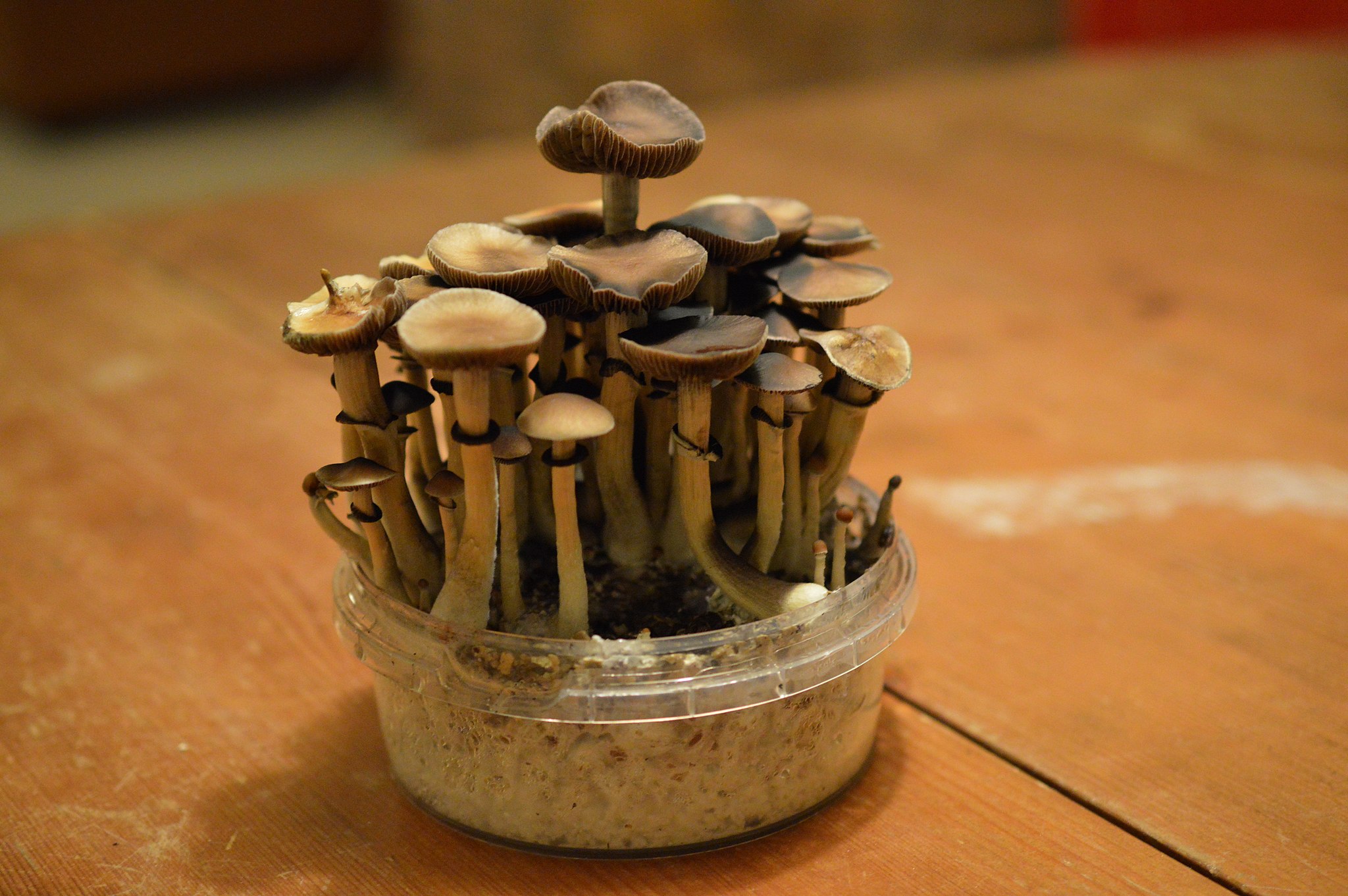On February 8, Oregon officials proposed the first set of rules to regulate legal psilocybin therapy in Oregon. The state’s voters legalized psilocybin therapy in November 2020, but the law requires a two-year implementation phase before it takes effect.
In March 2021, the state appointed an advisory board to study psilocybin therapy, its history and best practices. The board has been recommending regulations to the Oregon Health Authority (OHA). If the OHA approves them, it will begin accepting license applications by December 31, 2022, assuming no further delays.
Licenses will be issued for psilocybin facilitators, clinics, producers and distributors. These services may provide psilocybin therapy for anyone who seeks it out. The measure did not legalize psilocybin outright, and it won’t be available for purchase in dispensaries like cannabis.
One proposal is that the psilocybin-derived products permitted would be limited to just one species: Psilocybe cubensis.
The OHA’s proposed rules, based on those recommendations from the advisory board, concern psilocybin products, testing and facilitator training. One proposal is that the psilocybin-derived products permitted would be limited to just one species: Psilocybe cubensis, sometimes called “cubes.” This is the most commonly consumed psilocybin mushroom species, but several hundred species grow naturally throughout the world.
The proposal also specifies that mushrooms must be grown in “food-grade” material, and not dung or wood chips. Cubes could be sold just as mushrooms, or made into other edible products.
They could also have the active ingredient psilocybin extracted. However, psychedelic mushrooms contain several psychoactive compounds besides psilocybin—including psilocin, plus baeocystin and norbaeocystin. Similar to cannabis, which contains hundreds of different compounds, mushrooms may work on the mind and body in multiple ways we don’t yet understand.
No synthetic or genetically modified psilocybin would be allowed, however. Two major FDA clinical trials investigating psilocybin as a depression treatment, sponsored by Compass Pathways and the Usona Institute respectively, both use synthetic psilocybin. Compass has attracted controversy for seeking multiple patents on the synthetic formulation, and the exclusion of synthetics could be interpreted as a move to keep such companies out of Oregon’s market. That could theoretically benefit local farmers, who won’t need the sophisticated equipment or expertise to synthesize the drug.
But why limit it to just one species? Psilocybin consumers enjoy many different types of mushrooms, and some collect them wild. The idea seems based on a July 2021 report by the advisory board, which recommended that the state prioritize cubes and “grain-based” growing material, because of “toxicity concerns” with other species and growing materials. The board recommended that the state revisit this topic “as more information becomes available.”
The same report suggested that some species of mushrooms grown on decaying wood may cause temporary muscle weaknesses, dubbed “wood lovers’ paralysis.” The authors admit there is no documentation of this in existing research, but urged that “extreme care should be taken to avoid adverse reactions by consumption of these species.”
I hadn’t previously heard of wood lovers’ paralysis, but I have experienced similar symptoms in the past while using psilocybin. Deep into a trip, I feel my limbs become heavy, and have absolutely no desire to go anywhere or do anything. I just call it “being a couch potato.”
I don’t know which species do or don’t cause it—frankly, I am not even sure which species I consumed. But it’s far from clear that these symptoms, which I found quite enjoyable, happen widely; plenty of people have the opposite reaction, and enjoy going to museums or festivals while high. In the absence of supporting research, does this “adverse reaction” warrant excluding all other mushroom species?
Producers would submit mushroom batches to labs, where they’ll be tested for potency, solvents like methanol, pesticides, microbes like E. coli and heavy metals like lead.
The proposed rules also state that psilocybin products should not contain any other drugs or adulterants like alcohol or cannabis. Presumably that means no psilocybin coffee. There could be risks to combining psilocybin with certain substances—even if many people, including me, have combined psilocybin with alcohol, cannabis and more, and experienced benefits without significant problems. Not permitting the production of combinations is to be expected, though, and reflects that Oregon’s plan is not intended to be recreational.
The proposed rule on testing would require producers to submit mushroom batches to labs, where they’ll be tested for potency, solvents like methanol, pesticides, microbes like E. coli and heavy metals like lead. All manufacturing protocols, lab reports and other information would have to be recorded.
Altogether, the proposed rules demonstrate the challenges of coming up with such a model. Oregon has to strike a delicate balance between keeping patients safe, allowing businesses to operate and respecting people’s individual rights.
It would be ideal if people could buy their own psilocybin products, know exactly what’s in them, take them home, and use them as they wish, potentially in trusted company. Allowing home grow is also important.
But Oregon voters have approved none of that—yet. On balance, the proposed rules seem to prioritize patient safety with their strict testing requirements and cultivation restrictions. The synthetic ban may also protect the market from big pharmaceutical players.
If this is rolled out successfully, it’s to be hoped that Oregon will reconsider the benefits of allowing more mushroom species and more personal choice.
Photograph of psilocybin mushrooms by Cannabis Pictures via Flickr/Creative Commons 2.0




